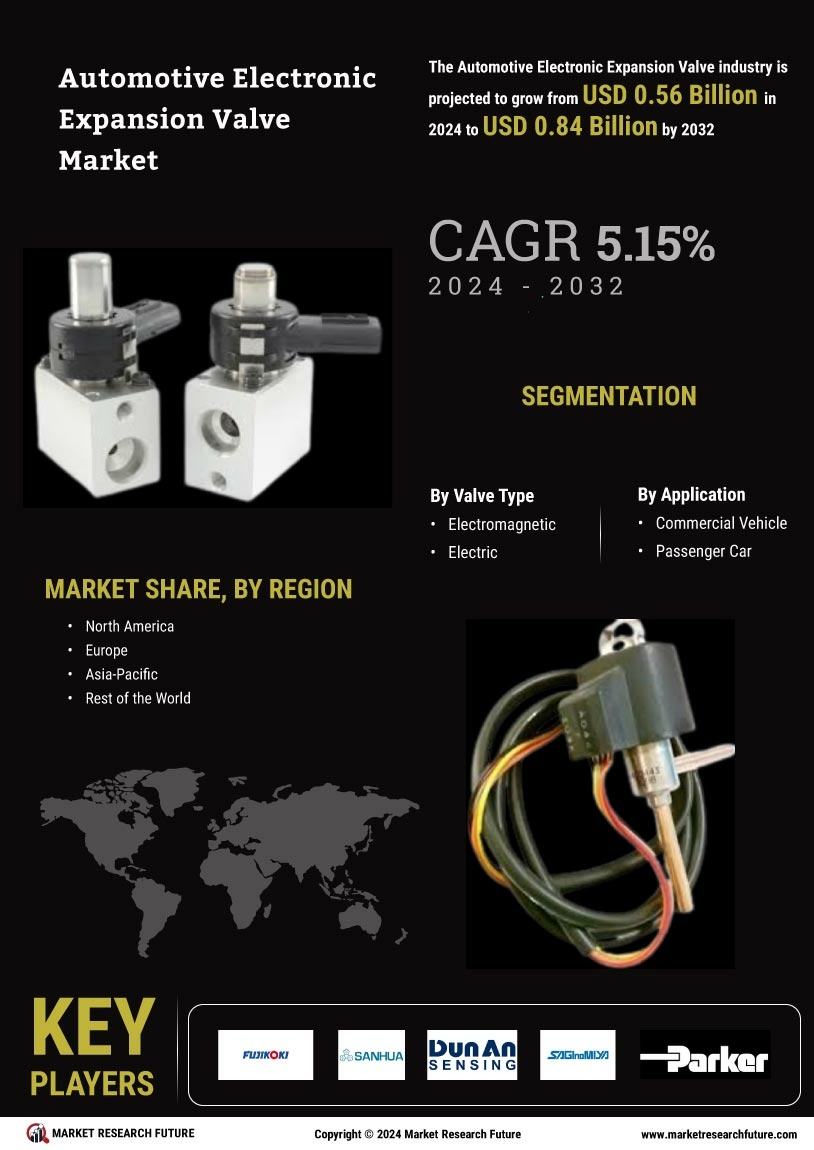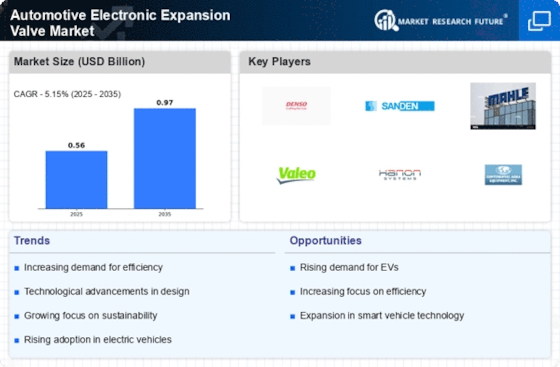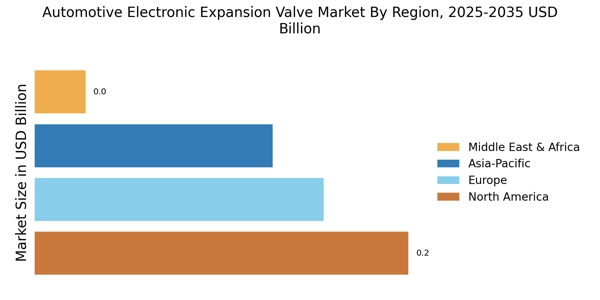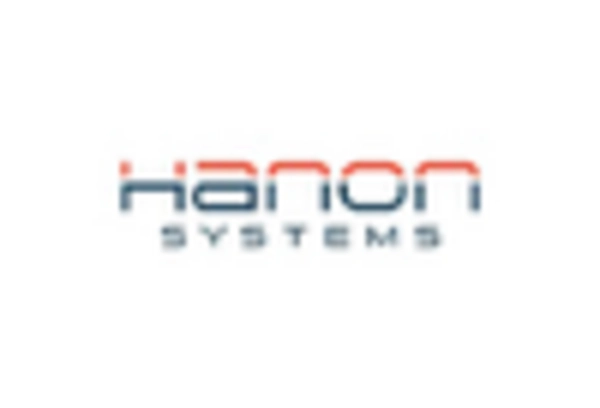Rising Demand for Fuel Efficiency
The Automotive Electronic Expansion Valve Market is experiencing a notable surge in demand for fuel-efficient vehicles. As consumers become increasingly conscious of fuel costs and environmental impacts, automakers are compelled to enhance the efficiency of their vehicles. Electronic expansion valves play a crucial role in optimizing the performance of air conditioning systems, thereby improving overall fuel efficiency. According to recent data, vehicles equipped with advanced electronic components, including expansion valves, can achieve up to 15% better fuel economy compared to traditional systems. This trend is likely to drive innovation and investment in the Automotive Electronic Expansion Valve Market, as manufacturers seek to meet consumer expectations and regulatory standards.
Increasing Electric Vehicle Production
The Automotive Electronic Expansion Valve Market is poised for growth due to the increasing production of electric vehicles (EVs). As the automotive industry shifts towards electrification, the demand for efficient thermal management systems becomes paramount. Electronic expansion valves are essential in managing the cooling and heating systems of EVs, ensuring optimal battery performance and passenger comfort. Recent statistics indicate that the EV market is expected to grow at a CAGR of over 20% in the coming years, which will likely drive the demand for electronic components, including expansion valves. This trend suggests a promising future for the Automotive Electronic Expansion Valve Market as manufacturers adapt to the evolving landscape of vehicle technology.
Technological Advancements in HVAC Systems
Technological advancements in heating, ventilation, and air conditioning (HVAC) systems are significantly influencing the Automotive Electronic Expansion Valve Market. The integration of smart technologies, such as IoT and AI, into HVAC systems allows for more precise control of temperature and humidity, enhancing passenger comfort. Electronic expansion valves are pivotal in these systems, enabling real-time adjustments based on environmental conditions. The market for automotive HVAC systems is projected to grow at a CAGR of approximately 6% over the next few years, indicating a robust demand for electronic components that improve system efficiency and performance. This growth is likely to bolster the Automotive Electronic Expansion Valve Market as manufacturers innovate to keep pace with technological advancements.
Regulatory Pressure for Emission Reductions
Regulatory pressure for emission reductions is a significant driver for the Automotive Electronic Expansion Valve Market. Governments worldwide are implementing stringent regulations aimed at reducing greenhouse gas emissions from vehicles. Electronic expansion valves contribute to this effort by enhancing the efficiency of HVAC systems, which in turn reduces the overall energy consumption of vehicles. As automakers strive to comply with these regulations, the demand for advanced electronic components that support emission reduction strategies is likely to increase. The market for automotive components that facilitate compliance with environmental standards is projected to expand, thereby positively impacting the Automotive Electronic Expansion Valve Market.
Consumer Preference for Advanced Comfort Features
Consumer preference for advanced comfort features in vehicles is shaping the Automotive Electronic Expansion Valve Market. Modern consumers increasingly seek vehicles equipped with sophisticated climate control systems that provide personalized comfort. Electronic expansion valves are integral to these systems, allowing for precise temperature regulation and improved air quality. Market Research Future indicates that vehicles with advanced HVAC systems can command higher prices and attract more buyers. As automakers respond to this consumer demand by incorporating more electronic components into their designs, the Automotive Electronic Expansion Valve Market is likely to benefit from this trend, leading to increased sales and innovation in product offerings.

















